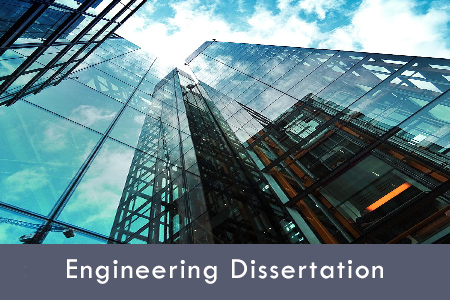What is a Civil Engineering Dissertation?
A Civil Engineering Dissertation is a research project where students explore various aspects of civil engineering. This could involve studying the design, construction, and maintenance of infrastructure like roads, bridges, and buildings.
In a civil engineering dissertation, you might focus on topics such as sustainable construction practices, earthquake-resistant structures, or water resource management. The goal is to contribute new knowledge or solutions to the field of civil engineering.
Why are Civil Engineering Dissertation Topics Important?
Civil engineering is essential for developing and maintaining the infrastructure that supports our daily lives. The topics you choose for your dissertation can have a real impact on society by improving safety, efficiency, and sustainability in construction.
By researching important issues like climate change adaptation or innovative materials, you can help shape the future of civil engineering. Your work can also open doors to new technologies and methods, making your research highly valuable.
Writing Tips for Civil Engineering Dissertation
- Select a Specific Topic: Narrow down your focus to a specific issue or challenge in civil engineering. This makes your research more detailed and manageable.
- Use Accurate Data: Ensure that your data and calculations are precise. In civil engineering, accuracy is crucial for safety and effectiveness.
- Explain Your Methodology: Clearly describe how you conducted your research and why you chose certain methods. This makes your dissertation easier to follow and understand.
- Include Visuals: Use diagrams, charts, and illustrations to explain complex concepts. Visuals can make your dissertation more engaging and easier to grasp.
Civil Engineering Dissertation Topics Brief Service
At dissertation-help.co.uk, we offer a comprehensive Dissertation Topics Brief Service to help you select a suitable dissertation topic. Our expert writers can help you generate ideas and outline a detailed topic brief of 500 words. This service ensures that you are headed in the right direction for your dissertation, with a clear and focused topic that meets academic standards.
Paid Topic Consultation Service
You will get the topics first as per the given requirements, and then the brief which includes;
- An explanation why we choose this topic.
- 2-3 research questions.
- Key literature resources identification.
- Suitable methodology with identification of raw sample size, and data collection method
- View a sample of topic consultation service
Download Sample Dissertations Pdf
Before you start working on your own dissertation, it’s helpful to take a look at some sample dissertations. Our collection of sample dissertations covers a wide range of civil law topics and can give you a better understanding of how to structure and write your own dissertation.
You can download free dissertation samples and topic briefs to get an idea of how to approach your topic and craft an engaging dissertation. This can serve as inspiration and guidance throughout your research process.
List of Civil Engineering Dissertation Topics
Explore innovative Civil Engineering dissertation topics, including structural engineering, sustainable construction, transportation planning, geotechnical engineering, and smart infrastructure. Find cutting-edge research ideas for your thesis.
Structural Engineering
- Utilization of advanced materials in earthquake-resistant structures.
- Innovative approaches to enhance the durability of bridges.
- Structural health monitoring techniques for infrastructure resilience.
- Sustainable design principles for high-rise buildings.
- Rehabilitation strategies for aging infrastructure.
Geotechnical Engineering
- Soil stabilization techniques for expansive soils.
- Assessment of slope stability in urban environments.
- Geotechnical considerations in underground construction projects.
- Application of geosynthetics in civil engineering projects.
- Investigation of liquefaction susceptibility in seismic regions.
Transportation Engineering
- Optimization of traffic signal control systems using AI algorithms.
- Integration of autonomous vehicles into transportation networks.
- Sustainable urban transportation planning strategies.
- Impact assessment of transportation infrastructure on the environment.
- Intelligent transportation systems for congestion management.
Environmental Engineering
- Remediation of contaminated sites using innovative technologies.
- Assessment of the environmental impact of construction materials.
- Wastewater treatment and reuse strategies for sustainable water management.
- Green infrastructure solutions for stormwater management.
- Carbon footprint analysis in construction projects.
Water Resources Engineering
- Hydrological modeling for flood risk assessment.
- Optimization of reservoir operation for water supply management.
- Climate change adaptation strategies for water resources planning.
- Groundwater contamination modeling and remediation techniques.
- River morphology dynamics and its implications on infrastructure.
Construction Management
- Application of Building Information Modeling (BIM) in construction projects.
- Lean construction techniques for improving project efficiency.
- Risk management in mega construction projects.
- Sustainable construction practices: Challenges and opportunities.
- Digitalization and automation in construction project management.
Urban Planning
- Smart city development: Integration of technology and infrastructure.
- Urban regeneration strategies for revitalizing deteriorating neighborhoods.
- Transit-oriented development for sustainable urban mobility.
- Affordable housing solutions in rapidly growing cities.
- Urban resilience planning for climate change adaptation.
Materials Engineering
- Development of eco-friendly construction materials.
- Nanotechnology applications in civil engineering materials.
- Recycling and reuse of construction and demolition waste.
- Durability assessment of concrete structures in aggressive environments.
- Novel approaches to enhance the strength and ductility of steel.
Coastal Engineering
- Coastal erosion management strategies.
- Impact of sea-level rise on coastal infrastructure.
- Design and optimization of coastal protection structures.
- Beach nourishment techniques for shoreline stabilization.
- Numerical modeling of wave-structure interactions.
Earthquake Engineering
- Performance-based seismic design of buildings.
- Retrofitting strategies for vulnerable structures.
- Seismic hazard assessment using advanced techniques.
- Soil-structure interaction in seismic analysis.
- Post-earthquake damage assessment and recovery planning.
Infrastructure Asset Management
- Life cycle assessment of infrastructure assets.
- Implementation of predictive maintenance techniques.
- Decision support systems for infrastructure asset management.
- Asset management in the context of smart cities.
- Risk-based prioritization of maintenance activities.
Energy Efficiency in Buildings
- Passive design strategies for energy-efficient buildings.
- Integration of renewable energy systems in building design.
- Building energy simulation and optimization.
- Indoor environmental quality and energy performance correlation.
- Net-zero energy buildings: Challenges and opportunities.
Tunnel Engineering
- Tunnel construction in challenging geological conditions.
- Fire safety measures in tunnel design and operation.
- Ventilation system optimization for tunnel safety.
- Monitoring and maintenance of tunnel infrastructure.
- Tunneling techniques for urban underground transportation.
Pavement Engineering
- Evaluation of sustainable pavement materials.
- Pavement performance modeling and prediction.
- Rehabilitation strategies for deteriorating pavements.
- Climate resilience in pavement design and maintenance.
- Recycling techniques for asphalt pavement materials.
Remote Sensing and GIS Applications in Civil Engineering
- Satellite-based monitoring of infrastructure assets.
- GIS-based spatial analysis for urban planning.
- LiDAR applications in terrain modeling and mapping.
- Remote sensing for monitoring natural hazards and disasters.
- Integration of drone technology in civil engineering applications.
Conclusion
Writing a civil engineering dissertation is an opportunity to explore important topics that can impact the world around us. Whether you’re interested in sustainable building practices, infrastructure design, or new construction technologies, your research can contribute valuable insights to the field. Choose a topic that excites you and remember to explain your methods and findings clearly.
(FAQs) About Civil Engineering Dissertation Topics
1. How do I choose the best dissertation topic in civil engineering?
Choosing the best dissertation topic in civil engineering involves identifying areas that are both relevant to current industry trends and align with your interests. Focus on topics that address real-world problems, such as sustainability, infrastructure development, or advanced materials. It’s important to select a topic that has enough resources available for research and one that can be managed within the given time frame.
2. What are some popular areas for civil engineering dissertation topics?
Popular areas for civil engineering dissertation topics include structural engineering, transportation engineering, environmental engineering, geotechnical engineering, and construction management. Topics like sustainable construction practices, renewable energy integration in infrastructure, and innovative building materials are gaining traction in the field.
3. Can I focus on a specific region or project in my civil engineering dissertation?
Yes, focusing on a specific region, city, or project can help narrow down your dissertation topic. For example, you could analyze a local infrastructure project, the impact of climate change on construction practices in the UK, or the application of new technologies in transportation systems. Regional or project-based topics offer practical insights and help make your dissertation more relevant to real-world applications.
4. How do I ensure my civil engineering dissertation is unique?
To ensure your dissertation stands out, choose a niche topic or an area of civil engineering that is under-researched or emerging. Focus on innovative techniques, cutting-edge technologies, or challenges that the industry is currently facing. You can also combine different areas of civil engineering, such as sustainability and smart cities, to create a unique research angle.
5. What are some good civil engineering dissertation topics for international students?
International students can explore civil engineering dissertation topics that focus on global challenges or compare engineering practices across different countries. Topics like sustainable infrastructure development, earthquake-resistant building design in different seismic zones, or the comparison of construction materials in various climates are excellent for international students. Additionally, topics related to international development projects or engineering solutions for underserved regions are also valuable.
List of Related Posts
- 99+ Top Civil Engineering Dissertation Topics for 2025
- 99+Best Networking Dissertation Topics Ideas for 2025
- 99+Best Engineering Dissertation Topics Ideas for 2025




